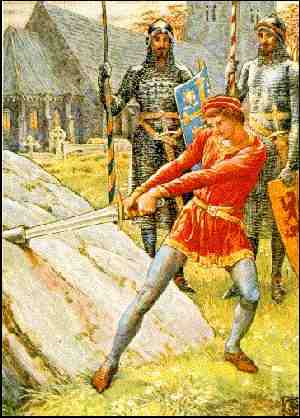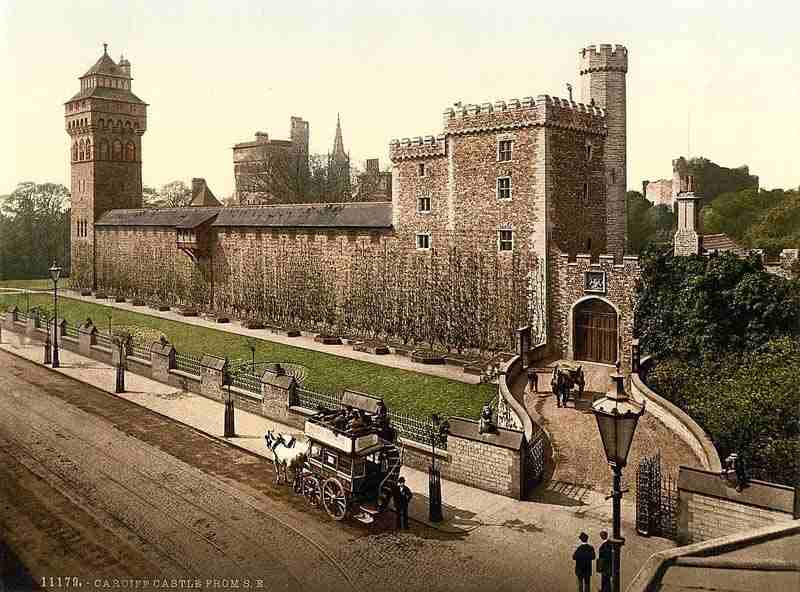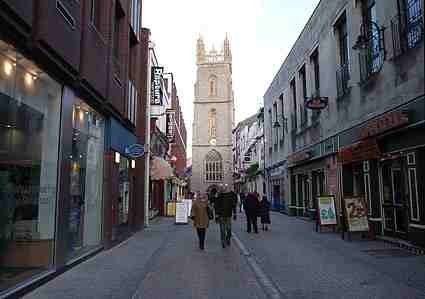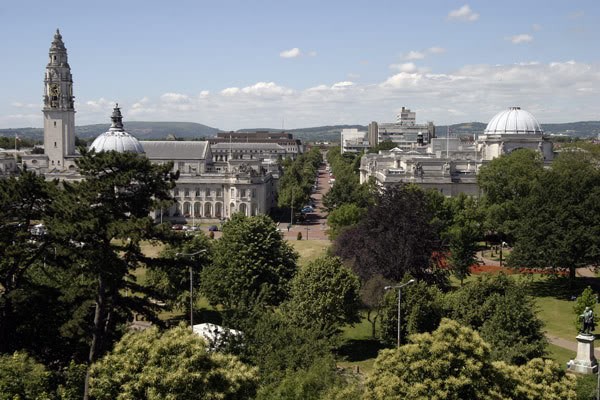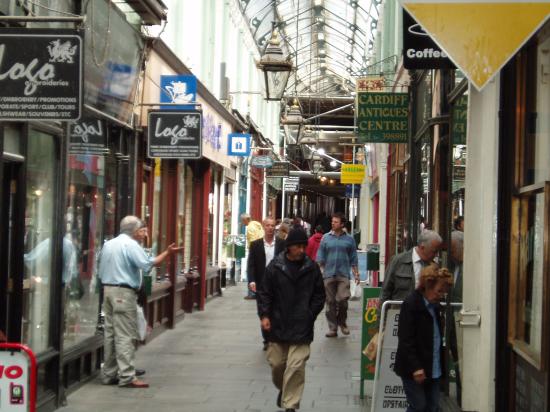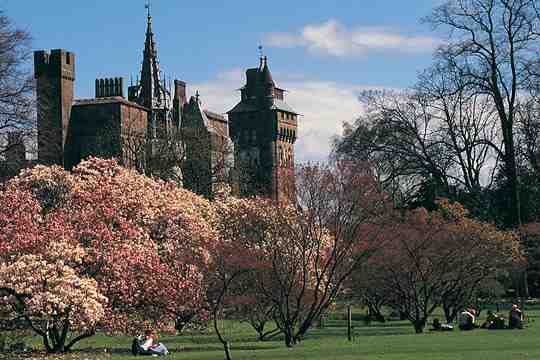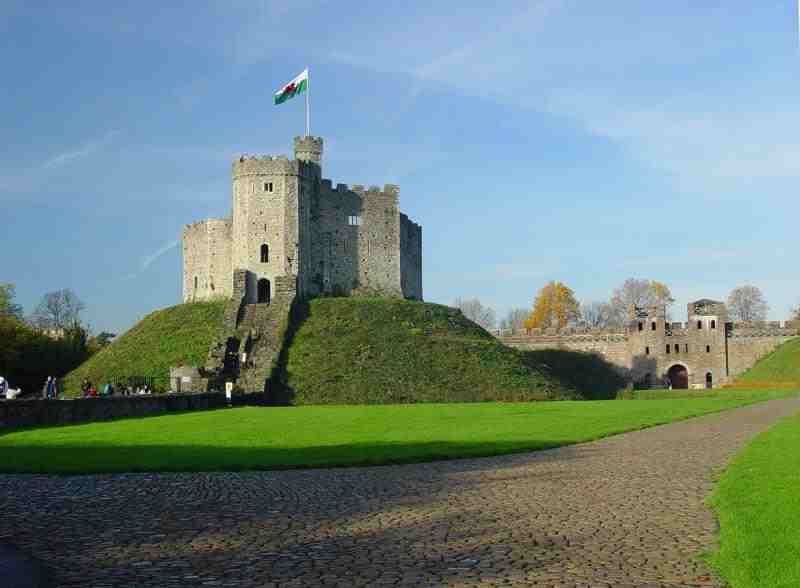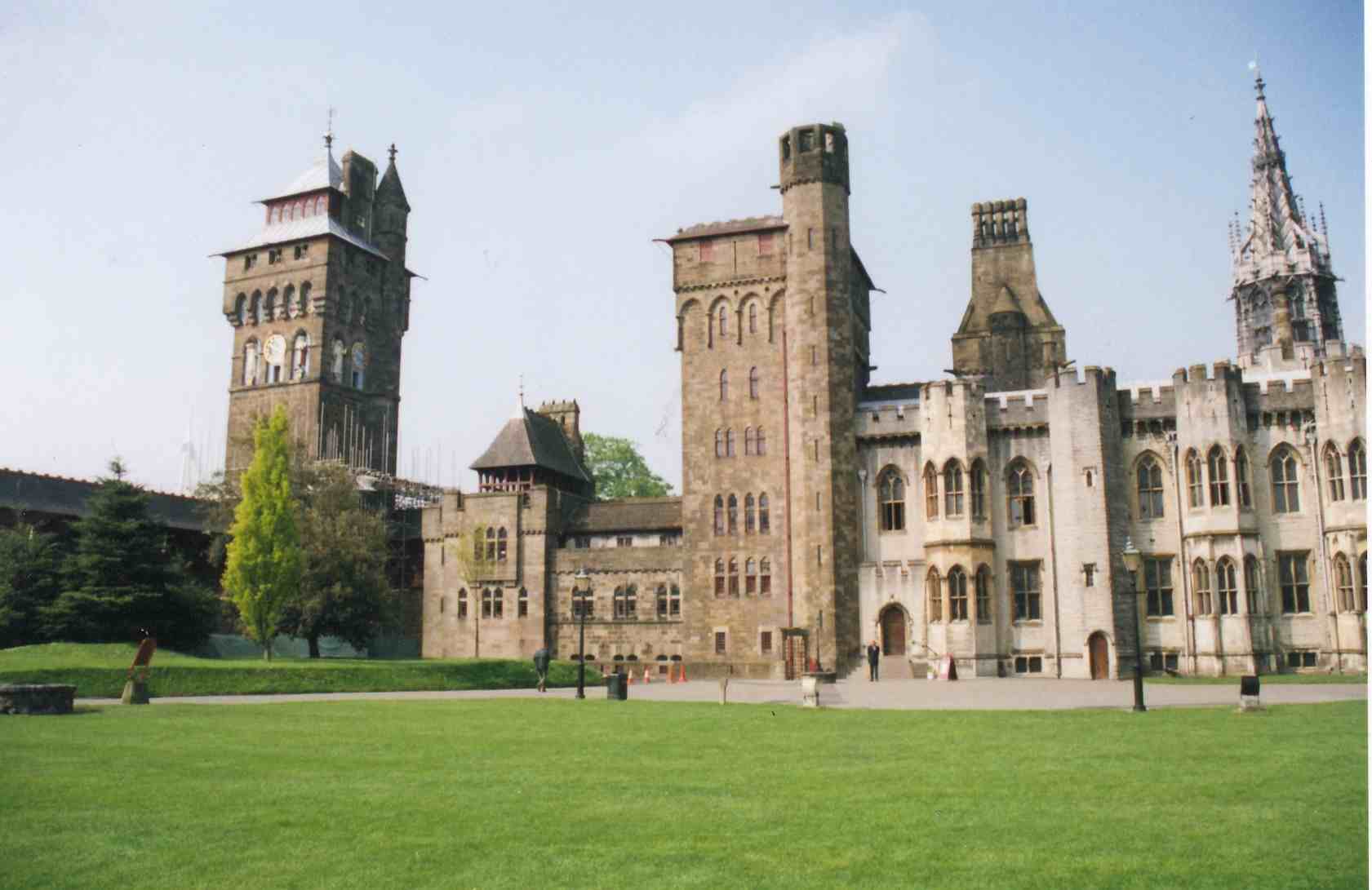THE
OF
THEOSOPHY
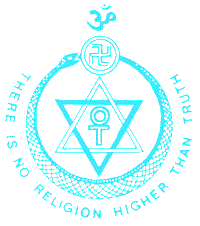
A Definitive Work on Theosophy
By
William Quan Judge

CHAPTER
9
Reincarnation
Continued
In the West, where the object of life is commercial,
financial, social, or scientific success, that is, personal profit,
aggrandizement, and power, the real life of man receives but little attention,
and we, unlike the Orientals, give scant prominence to the doctrine of
pre-existence and reincarnation.
That the church denies it is enough for many, with
whom no argument is of any use.
Relying on the church, they do not wish to disturb the
serenity of their faith in dogmas that may be illogical; and as they have been
taught that the church can bind them in hell, a blind fear of the anathema
hurled at reincarnation in the Constantinople council about 500 AD would alone
debar them from accepting the accursed theory. And the church in arguing on the
doctrine urges the objection that if men are convinced that they will live many
lives, the temptation to accept the present and do evil without check will be
too strong. Absurd as this seems, it is put forward by learned Jesuits, who say
men will rather have the present chance than wait for others.
If there were no retribution at all this would be a
good objection, but as Nature has also a Nemesis for every evil doer, and as each,
under the law of Karma -- which is that of cause and effect and perfect justice
-- must receive the exact consequences himself in every life for what good or
bad deeds and thoughts he did and had in other lives, the basis for moral
conduct is secure. It is safe under this system, since no man can by any
possibility, or favor, or edict, or belief escape the consequences, and each
one who grasps this doctrine will be moved by conscience and the whole power of
nature to do well in order that he may receive good and become happy.
It is maintained that the idea of rebirth is
uncongenial and unpleasant because on the one hand it is cold, allowing no
sentiment to interfere, prohibiting us from renouncing at will a life which we
have found to be sorrowful; and on the other, that there appears to be no
chance under it for us to see our loved ones who have passed away before us.
But whether we like it or not Nature's laws go forward unerringly, and
sentiment or feeling can in no way avert the consequence that must follow a
cause. If we eat bad food bad results must come. The glutton would have Nature
permit him to gorge himself without the indigestion which will come, but
Nature's laws are not to be thus put aside.
Now, the objection to reincarnation that we will not
see our loved ones in heaven as promised in dogmatic religion, presupposes a
complete stoppage of the evolution and development of those who leave earth
before ourselves, and also assumes that recognition is dependent on physical
appearance. But as we progress in this life, so also must we progress upon
leaving it, and it would be unfair to compel the others to await our arrival in
order that we may recognize them. And if one reflects on the natural
consequences of arising to heaven where all trammels are cast off, it must be
apparent that those who have been there, say, twenty of mortal years before us
must, in the nature of things mental and spiritual, have made a progress equal
to many hundreds of years here under varied and very favourable circumstances.
How then could we, arriving later and still imperfect, be able to recognize
those who had been perfecting themselves in heaven with such advantages? And as
we know that the body is left behind to disintegrate, so, it is evident,
recognition cannot depend, in the spiritual and mental life, on physical
appearance. For not only is this thus plain, but since we are aware that an
unhandsome or deformed body often enshrines a glorious mind and pure soul, and
that a beautifully formed exterior -- such as in the case of the Borgias -- may
hide an incarnate devil in character, the physical form gives no guarantee of
recognition in that world where the body is absent. And the mother who has lost
a child who had grown to maturity must know that she loved the child when a
baby as much as afterwards when the great alteration to later life had
completely swept away the form and features of early youth.
The Theosophists see that this objection can have no
existence in the face of the eternal and pure life of the soul. And Theosophy
also teaches that those who are like unto each other and love each other will
be reincarnated together whenever the conditions permit. Whenever one of us has
gone farther on the road to
perfection, he will always be moved to help and
comfort those who belong to the same family. But when one has become gross and
selfish and wicked, no one would want his companionship in any life.
Recognition depends on the inner sight and not on outward appearance; hence
there is no force in this objection. And the other phase of it relating to loss
of parent, child, or relative is based on the erroneous notion that as the
parents give the child its body so also is given its soul. But soul is immortal
and parentless; hence this objection is without a root.
Some urge that Heredity invalidates Reincarnation. We
urge it as proof. Heredity in giving us a body in any family provides the
appropriate environment for the Ego. The Ego only goes into the family which
either completely answers to its whole nature, or which gives an opportunity
for the working out of its evolution, and which is also connected with it by
reason of past
incarnations or causes mutually set up. Thus the evil
child may come to the presently good family because parents and child are
indissolubly connected by past actions. It is a chance for redemption to the
child and the occasion of punishment to the
parents. This points to bodily heredity as a natural
rule governing the bodies we must inhabit, just as the houses in a city will
show the mind of the builders.
And as we as well as our parents were the makers and
influencers of bodies, took part in and are responsible for states of society
in which the development of physical body and brain was either retarded or
helped on, debased or the contrary, so we are in this life responsible for the
civilization in which we now appear. But when we look at the characters in
human bodies, great inherent differences are seen. This is due to the soul
inside, who is suffering or enjoying in the family, nation, and race his own
thoughts and acts in the past lives have made it inevitable he should incarnate
with.
Heredity provides the tenement and also imposes those
limitations of capacity of brain or body which are often a punishment and
sometimes a help, but it does not affect the real Ego. The transmission of
traits is a physical matter, and
nothing more than the coming out into a nation of the
consequences of the prior lives of all Egos who are to be in that race. The
limitations imposed on the Ego by any family heredity are exact consequences of
that Ego's prior lives.
The fact that such physical traits and mental
peculiarities are transmitted does not confute reincarnation, since we know
that the guiding mind and real character of each are not the result of a body
and brain but are peculiar to the Ego in its essential life. Transmission of
trait and tendency by means of parent and body
is exactly the mode selected by nature for providing
the incarnating Ego with the proper tenement in which to carry on its work.
Another mode would be impossible and subversive of order.
Again, those who dwell on the objection from heredity
forget that they are accentuating similarities and overlooking divergencies.
For while investigations on the line of heredity have recorded many transmitted
traits, they have not done so in respect to divergencies from heredity vastly
greater in number. Every
mother knows that the children of a family are as
different in character as the fingers on one hand -- they are all from the same
parents, but all vary incharacter and capacity.
But heredity as the great rule and as a complete
explanation is absolutely overthrown by history, which shows no constant
transmission of learning, power, and capacity. For instance, in the case of the
ancient Egyptians long gone and their line of transmission shattered, we have
no transmission to their
descendants.
If physical heredity settles the question of
character, how has the great Egyptian character been lost? The same question
holds in respect to other ancient and extinct nations. And taking an individual
illustration we have the great musician Bach, whose direct descendants showed a
decrease in musical ability leading to its final disappearance from the family
stock. But Theosophy teaches that in both of these instances -- as in all like
them -- the real capacity and ability have only disappeared from a family and
national body, but are retained in the Egos who once exhibited them, being now
incarnated in some other nation and family of the present time.
Suffering comes to nearly all men, and a great many
live lives of sorrow from the cradle to the grave, so it is objected that
reincarnation is unjust because we suffer for the wrong done by some other person
in another life. This objection is based on the false notion that the person in
the other life was some one else. But in every life it is the same person. When
we come again we do not take up the body of some one else, nor another's deeds,
but are like an actor who plays many parts, the same actor inside though the
costumes and the lines recited differ in each new play. Shakespeare was right
in saying that life is a play, for the great life of the soul is a drama, and
each new life and rebirth another act in which we assume another part and put
on a new dress, but
all through it we are the selfsame person. So instead
of its being unjust, it is perfect justice, and in no other manner could
justice be preserved.
But, it is said, if we reincarnate how is it that we
do not remember the other life; and further, as we cannot remember the deeds
for which we suffer is it not unjust for that reason? Those who ask this always
ignore the fact that they also have enjoyment and reward in life and are
content to accept them without
question. For if it is unjust to be punished for deeds
we do not remember, then it is also inequitable to be rewarded for other acts
which have been forgotten.
Mere entry into life is no fit foundation for any
reward or punishment. Reward and punishment must be the just desert for prior
conduct. Nature's law of justice is not imperfect, and it is only the
imperfection of human justice that requires the offender to know and remember
in this life a deed to which a penalty is annexed. In the prior life the doer
was then quite aware of what he did, and nature affixes consequences to his
acts, being thus just.
We well know that she will make the effect follow the
cause whatever we wish and whether we remember or forget what we did. If a baby
is hurt in its first years by the nurse so as to lay the ground for a crippling
disease in after life, as is often the case, the crippling disease will come
although the child neither brought on the present cause nor remembered aught
about it. But reincarnation, with its companion doctrine of Karma, rightly
understood, shows how perfectly just the whole scheme of nature is.
Memory of a prior life is not needed to prove that we
passed through that existence, nor is the fact of not remembering a good
objection. We forget the greater part of the occurrences of the years and days
of this life, but no one would say for that reason we did not go through these
years.
They were lived, and we retain but little of the
details in the brain, but the entire effect of them on the character is kept
and made a part of ourselves. The whole mass of detail of a life is preserved
in the inner man to be one day fully brought back
to the conscious memory in some other life when we are
perfected. And even now, imperfect as we are and little as we know, the
experiments in hypnotism show that all the smallest details are registered in
what is for the present known as the subconscious mind. The theosophical doctrine
is that not a single one of these happenings is forgotten in fact, and at the
end of life when the eyes are closed and those about say we are dead every
thought and circumstance of life flash vividly into and across the mind.
Many persons do, however, remember that they have
lived before. Poets have sung of this, children know it well, until the
constant living in an atmosphere of unbelief drives the recollection from their
minds for the present, but all are
subject to the limitations imposed upon the Ego by the
new brain in each life.
This is why we are not able to keep the pictures of
the past, whether of this life or the preceding ones. The brain is the
instrument for the memory of the soul, and, being new in each life with but a
certain capacity, the Ego is only able to use it for the new life up to its
capacity. That capacity will be fully
availed of or the contrary, just according to the
Ego's own desire and prior conduct, because such past living will have
increased or diminished its power to overcome the forces of material existence.
By living according to the dictates of the soul the
brain may at least be made porous to the soul's recollections; if the contrary
sort of a life is led, then more and more will clouds obscure that
reminiscence. But as the brain had no part in the life last lived, it is in
general unable to remember. And this is a wise law, for we should be very
miserable if the deeds and scenes of our former
lives were not hidden from our view until by
discipline we become able to bear a knowledge of them.
Another objection brought up is that under the
doctrine of reincarnation it is not possible to account for the increase of the
world's population. This assumes that we know surely that its population has
increased and are keeping informed of its fluctuations. But it is not certain
that the inhabitants of the globe
have increased, and, further, vast numbers of people
are annually destroyed of whom we know nothing. In China year after year many
thousands have been carried off by flood.
Statistics of famine have not been made. We do not
know by how many thousands the deaths in Africa exceed the births in any year.
The objection is based on imperfect tables which only have to do with western
lands.
It also assumes that there are fewer Egos out of
incarnation and waiting to come in than the number of those inhabiting bodies,
and this is incorrect. Annie Besant has put this well in her
"Reincarnation" by saying that the inhabited globe resembles a hall
in a town which is filled from the much greater population of the town outside;
the number in the hall may vary, but there is a constant source of supply from
the town. It is true that so far as concerns this globe the number of Egos
belonging to it is definite; but no one knows what that quantity is nor what is
the total capacity of the earth for sustaining them.
The statisticians of the day are chiefly in the West,
and their tables embrace but a small section of the history of man. They cannot
say how many persons were incarnated on the earth at any prior date when the
globe was full in all parts, hence the quantity of egos willing or waiting to
be reborn is unknown to the men of today. The Masters of theosophical knowledge
say that the total number of such egos is vast, and for that reason the supply
of those for the occupation of bodies to be born over and above the number that
die is sufficient. Then too it must be borne in mind that each ego for itself
varies the length of stay in the post-mortem states. They do not reincarnate at
the same interval, but come out of the state after death at different rates,
and whenever there occurs a great number of deaths by war, pestilence, or
famine, there is at once a rush of souls to incarnation, either in the same
place or in some other place or race.
The earth is so small a globe in the vast assemblage
of inhabitable planets there is a sufficient supply of Egos for incarnation
here. But with due respect to those who put this objection, I do not see that
it has the slightest force or any
relation to the truth of the doctrine of
reincarnation.
______________________
THE
OF
THEOSOPHY

Find out more about
Theosophy with these links
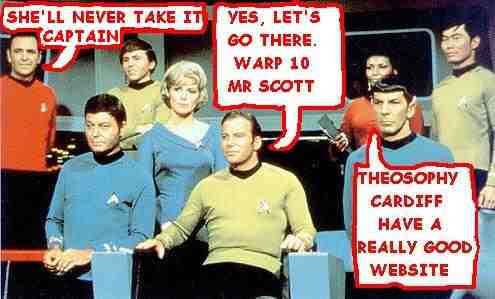
The Cardiff Theosophical Society Website
The
National Wales Theosophy Website
If you run a Theosophy Group, please feel free
to use any of the material on this site
The Most Basic Theosophy
Website in the Universe
A quick overview of Theosophy
and the Theosophical Society
If you run a Theosophy Group you
can use this as an introductory handout.
Theosophy Cardiff’s Instant Guide
One liners and quick explanations
H P Blavatsky is usually
the only
Theosophist that
most people have ever
heard of. Let’s
put that right
The Voice of the Silence Website
Theosophy Cardiff Nirvana Pages
An Independent Theosophical Republic
Links to Free Online Theosophy
Study Resources; Courses, Writings,
The main criteria
for the inclusion of
links on this
site is that they have some
relationship
(however tenuous) to Theosophy
and are lightweight,
amusing or entertaining.
Topics include
Quantum Theory and Socks,
Dick Dastardly and Legendary Blues Singers.
A selection of
articles on Reincarnation
Provided in
response to the large
number of
enquiries we receive at
Cardiff
Theosophical Society on this subject
The Voice of the Silence Website
This is for
everyone, you don’t have to live
in Wales to
make good use of this Website
The Seven
Principles of Man
By
Annie Besant
No
Aardvarks were harmed in the
The Spiritual Home of Urban Theosophy
The Earth Base for Evolutionary Theosophy
Reincarnation
This guide has been included in response
to the number of enquiries we receive on this
subject at Cardiff
Theosophical Society
From A Textbook
of Theosophy By C W Leadbeater
How We Remember our Past Lives
Life after Death & Reincarnation
The Slaughter of the
a great demand by the public for lectures on
Reincarnation
Classic Introductory Theosophy Text
A Text Book of Theosophy By C
What Theosophy Is From the Absolute to Man
The Formation of a Solar System The Evolution of Life
The Constitution of Man After Death
Reincarnation
The Purpose of Life The Planetary Chains
The Result of Theosophical Study
The Occult World
By
Alfred Percy
Sinnett
The Occult
World is an treatise on the
Occult and
Occult Phenomena, presented
in readable style, by an early giant of
the
Theosophical Movement.
Preface to the American Edition Introduction
Occultism and its Adepts The Theosophical Society
First Occult Experiences Teachings of Occult Philosophy
Later Occult Phenomena Appendix
by
Annie Besant
THE PHYSICAL PLANE THE ASTRAL PLANE
KÂMALOKA THE MENTAL PLANE DEVACHAN
THE BUDDHIC AND NIRVANIC PLANES
THE THREE KINDS OF KARMA COLLECTIVE KARMA
THE LAW OF SACRIFICE MAN'S
ASCENT
______________________
Annie Besant Visits Cardiff 1924
The Theosophy Cardiff Nirvana Pages
National Wales Centre for Theosophy
Blavatsky Wales Theosophy Group
______________________
We can learn something from these guys
(The universe exists for a while and then sort of
doesn’t)
Outline of the Creation Process
There is no Dead Matter in the Universe
The Divine Spark in Everything
The 10 rungs on the Ladder of Life
The Sevenfold Constitution of Man
Yes, we all operate at 7 levels
(or shouldn’t be)
(You do take some things with you but sadly not your
money)
(The Energy Driving the Universe)
We haven’t always looked like this
H P Blavatsky is usually the only Theosophist most
people have ever heard of. Let’s put that right.
on Dave’s Streetwise Theosophy Boards
Theosophy Cardiff Cancels its Affiliation
to the Adyar Based Theosophical Society
and becomes an independent body within
the Worldwide Theosophical Movement
Theosophy Birmingham (England)
The Birmingham Annie Besant Lodge
Theosophy Cardiff has links with the
__________________
The Theosophy Cardiff
Glastonbury Pages
The Theosophy Cardiff Guide to
The Theosophy Cardiff Guide to
The Theosophy Cardiff Guide to
The Terraced Maze of Glastonbury Tor
Glastonbury and
Joseph of Arimathea
The Grave of King Arthur & Guinevere
Views of Glastonbury High Street
The Theosophy Cardiff Guide to
__________________
Camberley, Surrey,
England GU15 2LF
Concerns about
the fate of the wildlife as
Tekels Park is to
be Sold to a Developer
Concerns are
raised about the fate of the
wildlife as The Spiritual
Retreat,
Tekels Park in
Camberley, Surrey,
England is to be
sold to a developer.
Tekels Park is a
50 acre woodland park,
purchased
for the Adyar
Theosophical
In addition to
concern about the park,
many are worried about the
future
of the Tekels
Park Deer as they
Confusion as the Theoversity moves
out of
Tekels Park to Southampton,
Glastonbury &
Chorley in Lancashire while the
leadership claim
that the Theosophical Society will
carry on using
Tekels Park despite its sale to a developer
Anyone planning a
“Spiritual” stay at the
Tekels Park Guest
House should be aware of the sale.
Future of Tekels Park Badgers in Doubt
Party On! Tekels Park Theosophy NOT
Tekels Park & the Loch Ness Monster
A Satirical view of
the sale of Tekels Park
in Camberley,
Surrey to a developer
The Toff’s Guide to the Sale of Tekels Park
What the men in
top hats have to
say about the
sale of Tekels Park
__________________________
An Outline of Theosophy
Charles Webster Leadbeater
Theosophy - What it is How is it Known?
The Method of Observation General Principles
The Three Great Truths Advantage Gained from this Knowledge
The Deity
The Divine Scheme The Constitution of Man
The True Man
Reincarnation
The Wider Outlook
Death Man’s Past and Future Cause and Effect
______________________________
A B C D EFG H IJ KL M N OP QR S T UV WXYZ
Complete Theosophical Glossary in Plain Text Format
1.22MB
Quick Explanations with Links to More Detailed Info
What is Theosophy ? Theosophy Defined (More Detail)
Three Fundamental Propositions Key Concepts of Theosophy
Cosmogenesis Anthropogenesis Root Races
Ascended Masters After Death States
The Seven Principles of Man Karma
Reincarnation Helena Petrovna Blavatsky
Colonel Henry Steel Olcott William Quan Judge
The Start of the Theosophical
Society
History of the Theosophical
Society
Theosophical Society Presidents
History of the Theosophical
Society in Wales
The Three Objectives of the
Theosophical Society
Explanation of the Theosophical
Society Emblem
The Theosophical Order of
Service (TOS)
Glossaries of Theosophical Terms
Index of Searchable
Full Text Versions of
Definitive
Theosophical Works
H P Blavatsky’s Secret Doctrine
Isis Unveiled by H P Blavatsky
H P Blavatsky’s Esoteric Glossary
Mahatma Letters to A P Sinnett 1 - 25
A Modern Revival of Ancient Wisdom
(Selection of Articles by H P Blavatsky)
The Secret Doctrine – Volume 3
A compilation of H P Blavatsky’s
writings published after her death
Esoteric Christianity or the Lesser Mysteries
The Early Teachings of The Masters
A Collection of Fugitive Fragments
Fundamentals of the Esoteric Philosophy
Mystical,
Philosophical, Theosophical, Historical
and Scientific
Essays Selected from "The Theosophist"
Edited by George Robert Stow Mead
From Talks on the Path of Occultism - Vol. II
In the Twilight”
Series of Articles
The In the Twilight”
series appeared during
1898 in The
Theosophical Review and
from 1909-1913 in The Theosophist.
compiled from
information supplied by
her relatives and friends and edited by A P Sinnett
Letters and
Talks on Theosophy and the Theosophical Life
Obras Teosoficas En Espanol
Theosophische Schriften Auf Deutsch
An Outstanding
Introduction to Theosophy
By a student of
Katherine Tingley
Elementary Theosophy Who is the Man? Body and Soul
Body, Soul and Spirit Reincarnation Karma
Guide to the
Theosophy Wales King Arthur Pages
Arthur draws the Sword from the Stone
The Knights of The Round Table
The Roman Amphitheatre at Caerleon,
Eamont Bridge, Nr Penrith, Cumbria, England.
Geoffrey of Monmouth
(History of the Kings of Britain)
The reliabilty of this work has long been a subject of
debate but it is the first definitive account of Arthur’s
Reign
and one which puts Arthur in a historcal context.
and his version’s political agenda
According to Geoffrey of Monmouth
The first written mention of Arthur as a heroic figure
The British leader who fought twelve battles
King Arthur’s ninth victory at
The Battle of the City of the Legion
King Arthur ambushes an advancing Saxon
army then defeats them at Liddington Castle,
Badbury, Near Swindon, Wiltshire, England.
King Arthur’s twelfth and last victory against the Saxons
Traditionally Arthur’s last battle in which he was
mortally wounded although his side went on to win
No contemporary writings or accounts of his life
but he is placed 50 to 100 years after the accepted
King Arthur period. He refers to Arthur in his inspiring
poems but the earliest written record of these dates
from over three hundred years after Taliesin’s death.
Pendragon Castle
Mallerstang Valley, Nr Kirkby Stephen,
A 12th Century Norman ruin on the site of what is
reputed to have been a stronghold of Uther Pendragon
From
wise child with no earthly father to
Megastar
of Arthurian Legend
History of the Kings of Britain
Drawn from the Stone or received from the Lady of the Lake.
Sir Thomas Malory’s Le Morte d’Arthur has both versions
with both swords called Excalibur. Other versions
5th & 6th Century Timeline of Britain
From the departure of the Romans from
Britain to the establishment of sizeable
Anglo-Saxon Kingdoms
Glossary of
Arthur’s uncle:- The puppet ruler of the Britons
controlled and eventually killed by Vortigern
Amesbury, Wiltshire, England. Circa 450CE
An alleged massacre of Celtic Nobility by the Saxons
History of the Kings of Britain
Athrwys / Arthrwys
King of Ergyng
Circa 618 - 655 CE
Latin: Artorius; English: Arthur
A warrior King born in Gwent and associated with
Caerleon, a possible Camelot. Although over 100 years
later that the accepted Arthur period, the exploits of
Athrwys may have contributed to the King Arthur Legend.
He became King of Ergyng, a kingdom between
Gwent and Brycheiniog (Brecon)
Angles under Ida seized the Celtic Kingdom of
Bernaccia in North East England in 547 CE forcing
Although much later than the accepted King Arthur
period, the events of Morgan Bulc’s 50 year campaign
to regain his kingdom may have contributed to
Old Welsh: Guorthigirn;
Anglo-Saxon: Wyrtgeorn;
Breton: Gurthiern; Modern Welsh; Gwrtheyrn;
*********************************
An earlier ruler than King Arthur and not a heroic figure.
He is credited with policies that weakened Celtic Britain
to a point from which it never recovered.
Although there are no contemporary accounts of
his rule, there is more written evidence for his
existence than of King Arthur.
How Sir Lancelot slew two giants,
From Sir Thomas Malory’s Le Morte d’Arthur
How Sir Lancelot rode disguised
in Sir Kay's harness, and how he
From Sir Thomas Malory’s Le Morte d’Arthur
How Sir Lancelot jousted against
four knights of the Round Table,
From Sir Thomas Malory’s Le Morte d’Arthur
Try these if you are looking for a local
Theosophy Group or Centre
UK Listing of Theosophical Groups
Cardiff
Theosophical Society in Wales
Cardiff, Wales, UK. CF24 – 1DL
_____________________________
Cardiff Picture Gallery
Cardiff
Millennium Stadium
The Hayes Cafe
Outside Cardiff Castle Circa 1890
Church Street
Cardiff View
Royal
The Original
Norman Castle which stands inside
the Grounds of
the later
Inside the
Grounds at
Cardiff Street
Entertainment
Cardiff Indoor
Market
Cardiff
Theosophical Society in Wales
Wales
Theosophy Links Summary
All Wales
Guide to Theosophy Instant Guide to Theosophy
Theosophy
Wales Hornet Theosophy Wales Now
Cardiff
Theosophical Archive Elementary Theosophy
Basic
Theosophy Theosophy in Cardiff
Theosophy
in Wales Hey Look! Theosophy in Cardiff
Streetwise
Theosophy Grand
Tour
Theosophy
Aardvark Theosophy
Starts Here
Theosophy 206 Biography of William Q Judge
Theosophy Cardiff’s Face Book of Great Theosophists
Theosophy Evolution Theosophy Generally Stated
Biography of Helena Petrovna Blavatsky
______________________________________________
Foundation of the Original Theosophical Society 1875
The first
Theosophical Society was founded in New York on
November 17th
1875 by Helena Petrovna Blavatsky,
Colonel Henry
Steel Olcott, William Quan Judge and others.
The
Theosophical Movement now consists of a diverse range of
organizations
which carry the Theosophical Tradition forward.
Cardiff
Theosophical Society has been promoting Theosophy since 1908
______________________________________________
मूल थियोसोफिकल सोसायटी 1875 फाउंडेशन
पहले थियोसोफिकल सोसायटी को न्यूयॉर्क में स्थापित किया गया था
17 नवंबर Helena Petrovna Blavatsky द्वारा 1875,
कर्नल Henry Steel Olcott,
William Quan Judge और दूसरों.
थियोसोफिकल आंदोलन अब एक विविध रेंज के होते हैं
आगे थियोसोफिकल परंपरा ले जो संगठनों.
कार्डिफ थियोसोफिकल सोसायटी 1908 के बाद से ब्रह्मविद्या को बढ़ावा देने की गई है
_______________________________________
Mūla thiyōsōphikala sōsāyaṭī 1875 phā'uṇḍēśana
Pahalē thiyōsōphikala sōsāyaṭī kō n'yūyŏrka mēṁ sthāpita kiyā gayā thā
17 Navambara Helena Petrovna Blavatsky dvārā 1875,
Kamala Henry Steel Olcott, aura dūsarōṁ.
Thiyōsōphikala āndōlana aba ēka vividha rēn̄ja kē hōtē haiṁ
Āgē thiyōsōphikala paramparā lē jō saṅgaṭhanōṁ.
Kārḍipha
thiyōsōphikala sōsāyaṭī 1908 kē bāda sē
brahmavidyā
kō baṛhāvā dēnē kī ga'ī hai
_____________________________________________
THEOSOPHY
MEETINGS
Please click here for Current Theosophical Events in
Cardiff


